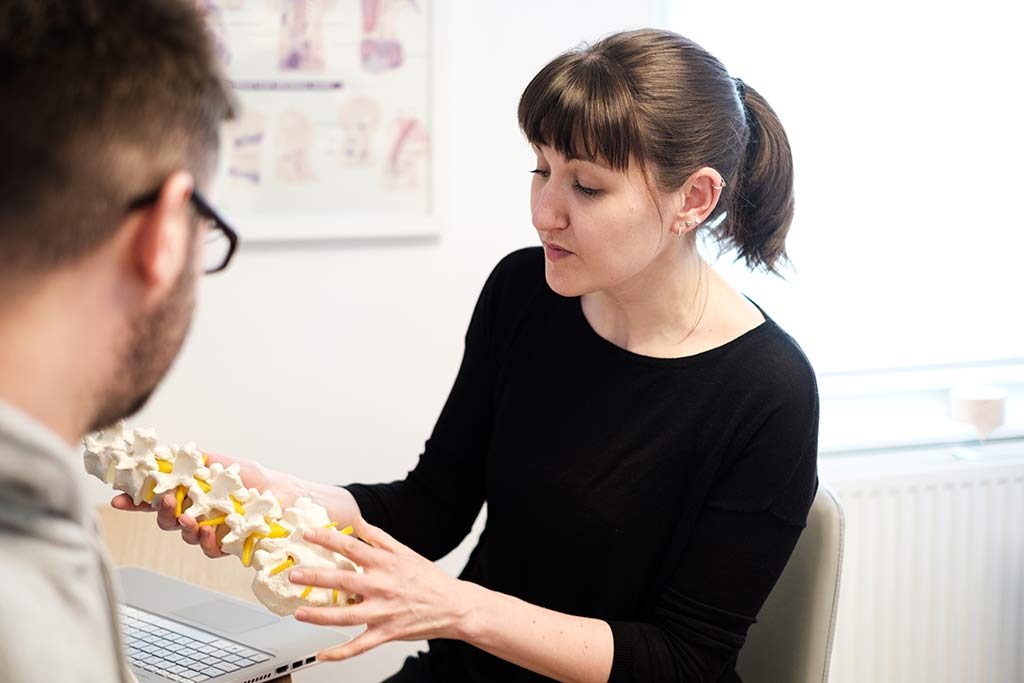Are you thinking about becoming a physiotherapist?
Considering a career in physiotherapy?
Physiotherapy is a very worthwhile and rewarding career, it requires hard work and dedication both when training and throughout your career. It is very important that you know what the career involves and that it will suit you before applying to train.
Physiotherapists are specialists in movement, we look after all aspects of a person’s health affected by problems with movement. Most people know that physiotherapists work in sport treating people after injuries and provide exercises and massage therapy but our training and work once qualified involves a lot more than this.
Both during training and when newly qualified, physiotherapists will work in a number of the following areas:

Areas of physiotherapy
Respiratory Physiotherapy
Respiratory physiotherapists work in hospitals (including the intensive care unit), doctors’ surgeries and in the community: treating people with a variety of breathing problems. They perform assessments of breathing pattern, listening to the sounds a person makes when breathing using a stethoscope and look at X-rays. Then use positioning, manual techniques and exercises to help people to overcome chest infections, recover from surgery and to cope with lung diseases.
All Physiotherapists who work in the NHS hospitals after qualification will be required to treat respiratory patients at night and over the weekends. They receive specialist training and work on a rota basis to ensure that the hospital has 24 hour cover to treat the most unwell patients.
Neurological Physiotherapy
When people suffer from Strokes, head injuries and other problems with their nervous systems they often lose the ability to move and function as well as before they became unwell. Where possible Physiotherapists use their skills and knowledge to help people to regain movement and work alongside other healthcare professionals to find ways to overcome disabilities that remain.
Orthopaedic or Musculoskeletal Physiotherapy
This area of Physiotherapy involves treating problems or injuries to the muscles, bones, joints and nerves. This can involve working in hospitals seeing people in accident and emergency after a trip or fall, getting them moving after a joint replacement operation or surgery to stabilise broken bones. The majority of Physiotherapists in this area work in clinics either in the NHS or privately and will treat a wide variety of conditions including neck and back pain, sports injuries such as ankle sprains, whiplash injuries or arthritis.
Women’s Health Physiotherapy
In women’s health, Physiotherapists help with problems associated with pregnancy and after giving birth, such as pelvic girdle pain, and abdominal muscle separation (diastasis recti). They also help with incontinence and pelvic organ prolapse issues.
Care of the elderly
As people age, they can be affected by a number of problems including mobility issues, fractures after falls, breathing problems, brain injuries or other neurological conditions. These conditions may be complex and take longer to recover from in older people due to other potential health problems. One specialist area in care of the elderly is assessing the risk and cause of falls, with a view to providing rehabilitation to prevent future falls.
Paediatric Physiotherapy
Physiotherapists who work with children have to have specialist knowledge of how the body changes and grows through childhood and how children learn to move and develop skills. This knowledge is used to identify abnormalities in development and address the areas that can be improved with Physiotherapy. They treat children with conditions that maybe present from birth such as cerebral palsy, muscular dystrophy or hypermobility and acquired problems such as sporting injuries or broken bones.
Sport Physiotherapy
From local clubs to premiership football clubs and Olympic teams, Physiotherapists play a vital role in ensuring athletes are performing to their best. As well as helping athletes to recover from injuries, Physiotherapists work to prevent injuries by ensuring athletes have good posture, cardiovascular fitness, muscle strength and flexibility. This specialism of Physiotherapy is likely to involve more early mornings, evening and weekend work and time spent outside in all weathers.
What attributes and skills are needed to be a good physiotherapist?
Good Physiotherapists have a wealth of skills, many of which are taught and developed during training. However, due to the work involved and the responsibility of looking after patients who are sometimes very unwell, certain personality traits and attributes will help Physiotherapists to excel in their career. Being compassionate is essential to being a healthcare professional and for most Physiotherapists wanting to care for people, is the main reason for their career choice.

Physiotherapists are autonomous practitioners and therefore need to be responsible, reliable and motivated to provide a high standard of care. Each patient is different and so Physiotherapists need to be adaptable, able to think on their feet and problem solve to ensure that people receive the best possible care.
One of the most important skills in Physiotherapy is communication, the ability to listen, understand a patient’s needs and adapt communication styles accordingly. Team working skills are also essential as Physiotherapists need to work alongside other healthcare professional in order to provide holistic care for patients.
Physiotherapists need to continue to study throughout their careers, to ensure they are up to date with the latest clinical research. This involves proactively attending courses, supervision with more senior clinicians and reading medical journals.
Working in healthcare involves interacting with people from many different races, religions and backgrounds. Healthcare professional must have the capacity to treat everyone equally and ensure they remain non-judgemental at all times.
How to apply to become a Physiotherapist.
If you wish to become a Chartered Physiotherapist all applicants must hold a Bachelor of Science degree in Physiotherapy. Additional information about which universities offer these courses and their entry requirements can be found on The Universities and Colleges Admissions Service (UCAS) website.
Further information about a career in Physiotherapy can be found on The Chartered Society of Physiotherapy (CSP) website.
If you are interested in joining our Physiotherapy team, please view our current vacancies.
To book your consultation please complete our online booking form*.
If you would like to know more about how we can help you, please contact us and one of our friendly team will be happy to discuss your needs, without obligation.
* Please note: If your treatment costs are to be paid directly by your health insurance company, we kindly ask that you contact us by phone or email to arrange your appointment.
Please read our cancellation policy.
Here's what our clients say.
At Marple Physiotherapy we pride ourselves on our excellent reputation. We therefore highly value the patient feedback we receive as we continually strive to improve our services.
© 2025 Marple Physio. All rights reserved.